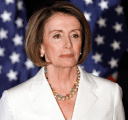Education
Elon Musk Just Cut $1 Trillion From the Deficit. Should Investors Care?
Yes. And here’s why.
In a headline that honestly reads like satire—but is 100% real—Elon Musk announced he’s stepping down from his role as head of the Department of Government Efficiency (DOGE) after allegedly helping slash the U.S. federal deficit by $1 trillion in just 130 days.
Love him or hate him, Elon doesn’t just move markets—he is a market mover. But this time, it’s not a new Tesla model or a Dogecoin tweet. It’s federal spending, government inefficiencies, and a major pivot in how the U.S. is handling its books. And yes, it matters a lot for investors.
Let’s dig into what this means for your portfolio—and what to watch next.
Wait, Elon Musk Was in the Government?

Short version: kind of.
Elon took on a 130-day term as a "special government employee" under the Trump administration, leading a small, engineer-heavy team called DOGE (yes, that acronym is real) to cut spending, reduce waste, and make government run more like a startup.
According to DOGE, they’ve already saved $130 billion in actual spending—about $807 per taxpayer. They’ve laid off tens of thousands of federal employees, slashed contracts, and questioned things like why 2.3 million employees have 4.6 million credit cards.
It’s extreme. It’s aggressive. And it’s controversial.
But here’s the real question: what does a smaller government deficit mean for investors?
Why Investors Should Be Paying Attention
You don’t need to be a policy nerd to understand that a $1 trillion deficit reduction is a huge macro event.
1. Lower Deficit = Lower Treasury Supply (Potentially)
When the government borrows less, it issues fewer Treasuries. That could reduce pressure on bond yields—at least short-term—which helps growth stocks and risk-on assets.
In plain English: less government borrowing can stabilize interest rates.
That’s good news if you’re long equities or tech-heavy ETFs. It could also relieve some upward pressure on the 10-year Treasury yield, which has been a major weight on valuations lately.
2. Government Cuts Could Shift Consumer Behavior
If programs are being cut—especially those that funnel cash into the economy—there could be a cooling effect on consumer spending. That may hurt certain sectors like retail or travel.
However, it could also mean less inflation, which is bullish for long-term asset prices.
3. Increased Business Efficiency Narrative
Elon’s whole DOGE playbook is based on “cut the fat, streamline ops, and measure twice, cut once.”
Sound familiar? That’s exactly what investors want to see in the companies they invest in.
This narrative could accelerate investor preference toward leaner, cash-flow-positive businesses over bloated, high-growth plays with no earnings. Think: quality over hype.
Is This Just Political Theater or Market Shifting?

Let’s be clear: there are valid criticisms of Musk’s DOGE initiative.
Critics argue he operated without proper oversight, canceled contracts unilaterally, and made sweeping decisions that could have long-term consequences. And it’s unclear how much of the deficit reduction is real savings vs. short-term accounting tricks.
But regardless of the political noise, markets care about momentum. And this story feeds right into some powerful macro narratives:
A more hawkish fiscal policy.
More scrutiny on government efficiency.
A potential reduction in inflationary pressure.
All of which can shift investor sentiment and asset allocation.
What You Should Do as an Investor
Whether or not you think Elon belongs anywhere near the federal budget, here’s how to think about this strategically:
1. Watch Bond Yields and Inflation Expectations
If deficit reductions continue, you might see bond yields stabilize or even fall. That helps tech, real estate, and other rate-sensitive sectors.
2. Lean Into Quality and Discipline
The market is shifting toward companies—and portfolios—that operate lean. Think high return on capital, low debt, and strong margins.
3. Don’t Ignore Macro Risk
Cuts to government programs can create ripple effects in the economy. Be cautious around sectors dependent on government spending, especially if you're exposed through thematic ETFs or individual names.
Final Thoughts
Elon Musk’s 130-day government stint might seem like meme-fodder, but there are real macro and market signals buried in the chaos.
Whether you’re building your own strategy or automating it through a platform like Surmount, the lesson is clear: macro policy matters. What happens in Washington doesn’t stay in Washington—it hits portfolios, asset flows, and sector rotations faster than ever.
And if Musk’s push for efficiency catches on? Expect Wall Street to start demanding it across the board.
Stay smart. Stay automated. And stay watching what actually moves markets—not just what’s trending.
The information presented is for educational purposes only and not an offer or solicitation for any specific investments. Investments involve risk and are not guaranteed. Consult with a financial adviser before making any investment decisions. Past performance does not guarantee future results.
Automate any portfolio using data-driven strategies made by top creators & professional investors. Turn any investment idea into an automated, testable, and sharable strategy.





